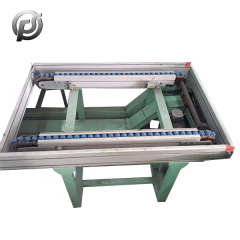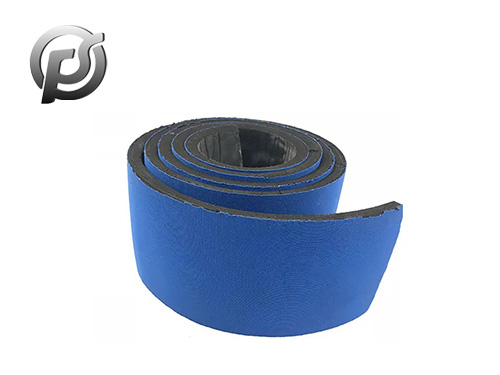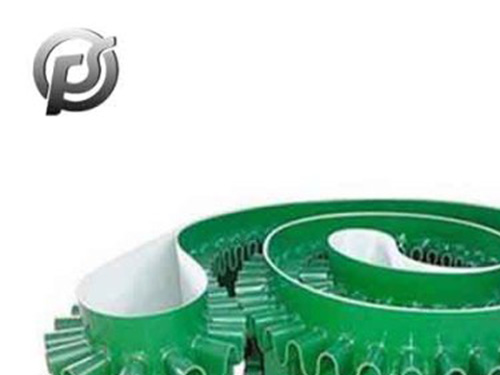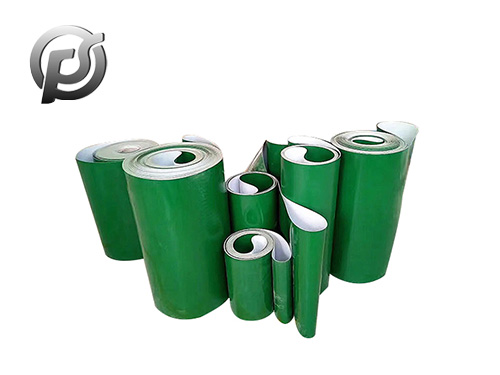Food conveyor belts have become an integral part of the modern food industry, revolutionizing the way food is processed, transported, and served. This article explores the diverse applications, advantages, and innovations surrounding
food conveyor belts, showcasing their essential role in enhancing efficiency and hygiene across various aspects of the food supply chain.
Efficient Material Handling:
Food conveyor belts serve as a cornerstone in efficient material handling within the food industry. From raw ingredients to finished products, these belts streamline the movement of materials through various stages of production, minimizing manual handling and reducing the risk of contamination.
Hygienic Design for Food Safety:
The design of food conveyor belts prioritizes hygiene and food safety. Belts are often made from materials that are resistant to bacteria and easy to clean. This hygienic design minimizes the risk of cross-contamination and ensures that food products meet stringent safety standards.
Customized for Varied Applications:
Food conveyor belts are highly versatile and can be customized to suit diverse applications in the food industry. Whether it's transporting delicate pastries, raw meats, or packaged goods, conveyor belts can be tailored to meet specific requirements, contributing to the efficiency of different food processing operations.
Temperature Control for Freshness:
Conveyor belts play a crucial role in maintaining the freshness of perishable foods. In environments where temperature control is essential, such as in the transportation of chilled or frozen products, conveyor belts equipped with cooling or heating mechanisms ensure that food items remain within optimal temperature ranges.
Automated Sorting and Packaging:
Food conveyor belts are integrated into automated sorting and packaging systems, facilitating the efficient and precise packaging of food products. This automation not only speeds up the packaging process but also reduces the likelihood of errors, ensuring consistency in product presentation.
Reducing Labor Intensity:
The adoption of food conveyor belts has significantly reduced the labor intensity associated with manual material handling. Automated conveyor systems allow for continuous and smooth movement of goods, contributing to increased operational efficiency while minimizing labor-related costs.
Modular and Expandable Systems:
Modern food conveyor systems are often modular and expandable, providing scalability to accommodate growing production demands. This flexibility allows food manufacturers to adapt their conveyor systems to changing requirements, making it a cost-effective investment for long-term efficiency.
Compliance with Food Regulations:
Food conveyor belts are designed to comply with strict food regulations and standards. Materials used in the construction of these belts are chosen to ensure they meet food-grade requirements, contributing to the overall safety and quality assurance in the food industry.
Applications in Diverse Food Settings:
Food conveyor belts find applications in various food settings, including bakeries, meat processing plants, beverage production, and more. Their adaptability and versatility make them an indispensable component in the seamless flow of food products across different sectors of the food industry.
Conclusion:
In conclusion, food conveyor belts play a vital role in modernizing and optimizing the food industry. Their efficient material handling, hygienic design, customization options, temperature control features, automation capabilities, and compliance with food regulations collectively contribute to a more streamlined and effective food supply chain. As technology continues to advance, the innovation surrounding food conveyor belts is expected to further enhance the efficiency and safety of food processing and distribution systems.


 PE Conveyor Belts: Characteristics, Applications, and Advantages
PE Conveyor Belts: Characteristics, Applications, and Advantages
 Stone Conveyor Belt: Enhancing Efficiency and Productivity in Material Handling
Stone Conveyor Belt: Enhancing Efficiency and Productivity in Material Handling
 Optimizing Operations with PE Conveyor Belts: Durability, Efficiency, and Versatility
Optimizing Operations with PE Conveyor Belts: Durability, Efficiency, and Versatility